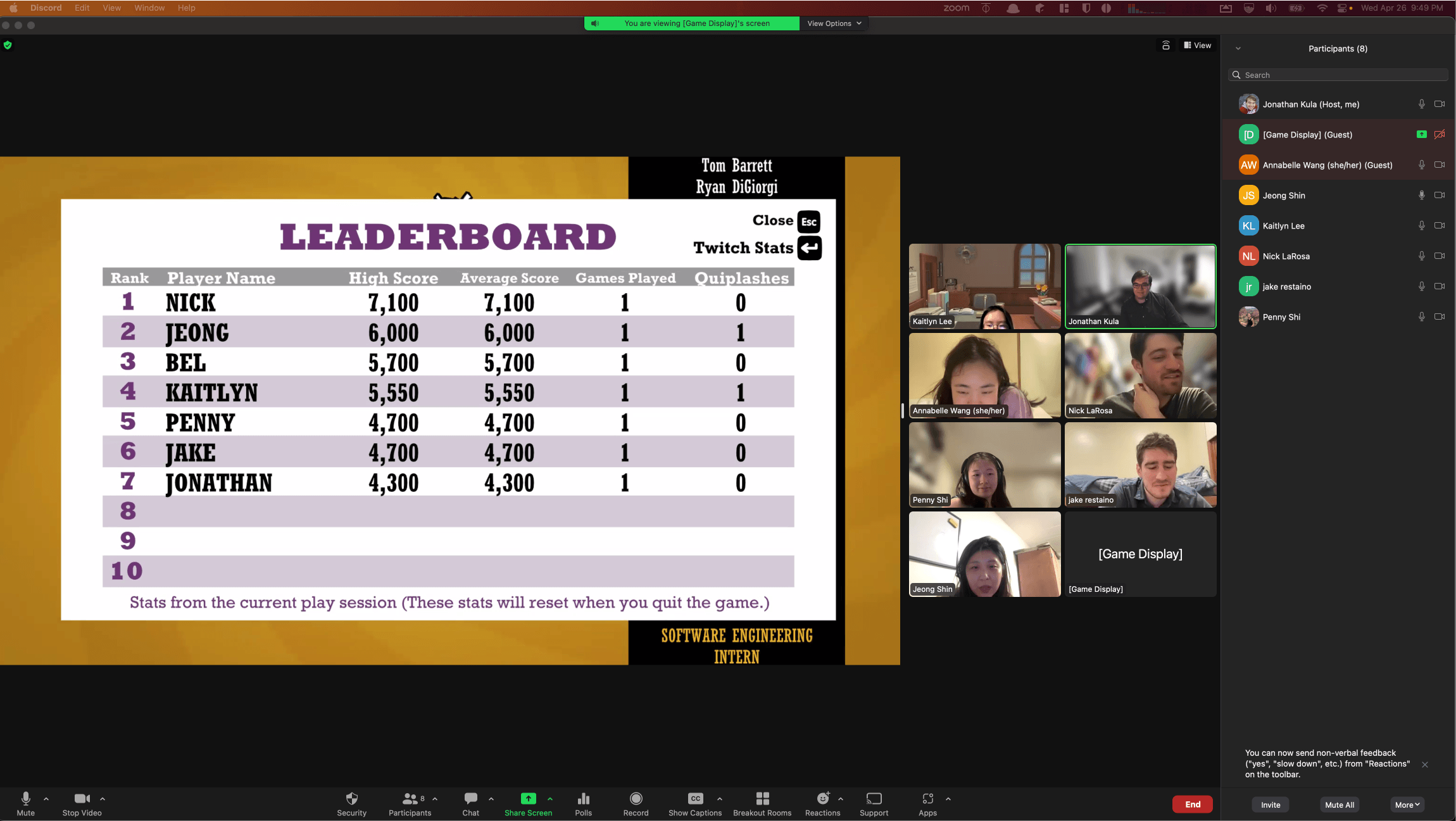Introduction
Quiplash is a hybrid mobile-console (or mobile-PC) game by Jackbox Studios, and part of the Jackbox Party Pack series. It’s targeted towards groups of older teens and adults (and includes adult-themed prompts), although it also has a kid-friendly version.
Analysis
- Objective: Win the most points vs. other players! Although really the goal is to make each other laugh and have a good time.
- Players: Multilateral competition, player vs. player
- Boundaries: The game screen and the phone screens (which act as controllers)– Jackbox games of all sorts are often played on streams or over video calls, which means the boundary doesn’t necessarily have to be the room it’s played in!
- Resources: Players need to have some kind of individual device and internet access (usually a phone, but could be a computer or tablet), plus a device to host the game on (usually a computer, but could also be a console).
- Procedures: The game screen and audio describes the procedures to the players: they are presented with a pair of prompts privately on their device, and fill them out as best (usually as funny!) as possible. It turns out that every prompt is shared with at least one other person in the room, and your answers are pitted against each other! Everyone else votes on them, and the winner gets points, and even more points if nobody choses your opponent’s answer.
- Rules: Aside from the general gameplay flow, the only rules that players really need to follow are mostly to keep the social contact between the players (i.e. not peeking at each others’ screens)
- Outcomes: Win the most points vs. other players– zero sum!
This game leverages fellowship as its key type of fun– found in the dynamics and juxtapositions between players and their answers– with expression as a method to help facilitate that! The zero-sum nature builds a healthy competition that encourages players to really think about how answers would be funny to their fellow players, which encourages and highlights fellowship. The use of multiple devices and private information means that players get a moment of safety where their identity isn’t known and players can get used to the answers before players’ names are revealed.

This also makes the judging impersonal, so while people get to have fun with their answers and bask in the judging aspect, it doesn’t feel personally motivated and prevents people ganging up on winners/taking the competition too seriously. This is one of the reasons the game works so well– it’s always focused in on giving people a good time with the prompts and judging them, only using the competition as a way to encourage players to go even harder with their prompts, rather than finding other ways to game the system or focus too much on “winning.”



